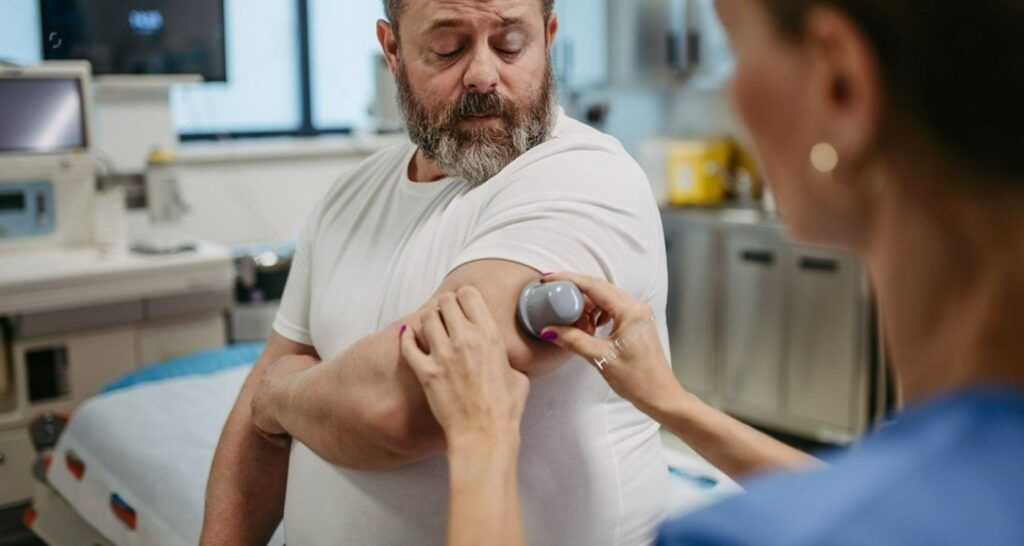Type 2 diabetes is a progressive, chronic disease related to your body’s challenges with regulating blood sugar. It is often associated with generalized inflammation. Your pancreas produces the hormone insulin to convert sugar to energy that you either use immediately or store. With type 2 diabetes you are unable to use that insulin efficiently. Although your body produces the hormone, either there isn’t enough of it to keep up with the amount of glucose in your system or the insulin being produced isn’t being used as well as it should be, both of which result in high blood sugar levels.

What causes Type 2 Diabetes?
Type 2 diabetes is most common in those who are genetically predisposed and who are overweight, lead a sedentary lifestyle, have high blood pressure, or have insulin resistance due to excess weight. As you age, you are also at increased risk of developing diabetes. A poor diet and smoking can also affect your risk.
What are the complications of Type 2 diabetes?
There are many complications of diabetes. Knowing and understanding the signs of these complications are important. If caught early, some of these complications can be treated an prevented from getting worse. The best way to prevent complications of diabetes is to keep your blood sugars in good control. High glucose levels produce changes in the blood vessels themselves, as well as in blood cells that impair blood flow to various organs.
What are the symptoms of Type 2 Diabetes?
Often people don’t experience symptoms of diabetes until their blood sugars are very high. Symptoms of diabetes include: increased thirst, increased urination, increased hunger, extreme fatigues, numbness and tingling in the extremities, cuts and wounds that are slow to heal, and blurred vision. Some people also experience other less common symptoms including weight loss, dry itchy skin, increased yeast infections, erectile dysfunction, and acanthosis nigricans
How is Type 2 Diabetes Diagnosed?
A diagnosis of diabetes can be done using a variety of blood tests..
If you are at increased risk of diabetes, have symptoms of diabetes, or have pre-diabetes, your doctor will check to see if you have diabetes. Your doctor may also check to see if you have diabetes if you are over the age of 45, have a family history of the disease, are overweight, or if you are at increased risk for another reason.



